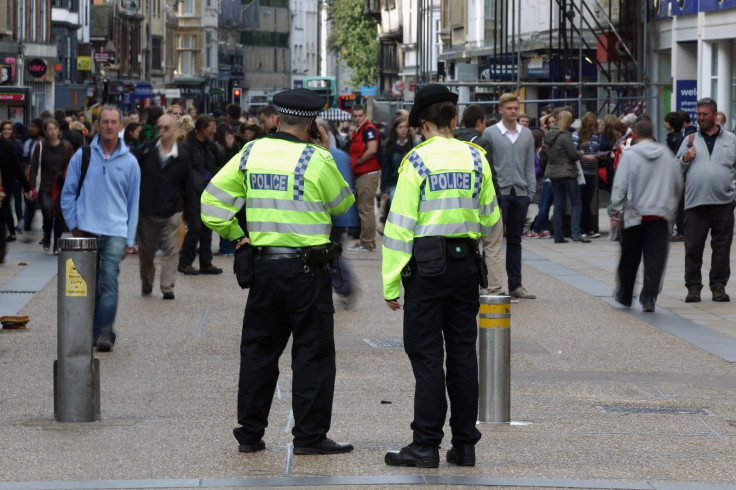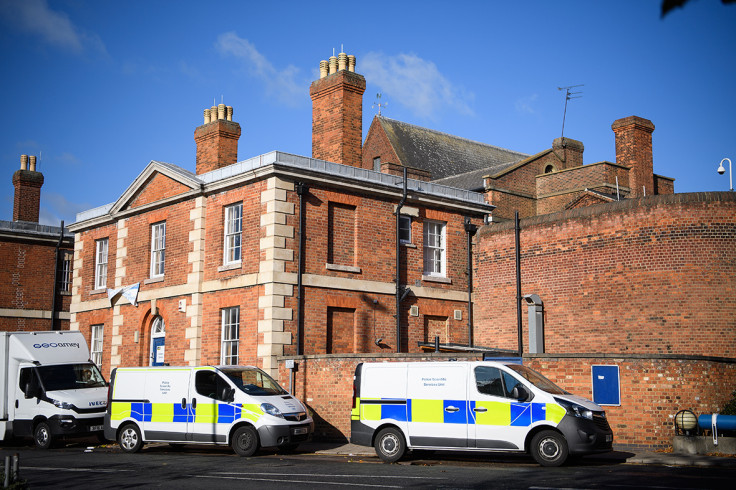Unions reject government's 'pathetic' pay rise offer to police and prison officers
Unions threaten strike action over government's seven-year freeze on public sector pay.

Unions have rejected the UK government's plans to offer prison officers and policeman a pay rise and effectively end a pay cap imposed on public sector works since 2010.
In the government proposal, prison officers would receive an average pay increase of 1.7% in 2017/18, while police would receive a 1% hike to their basic pay, plus a one-off 1% bonus in 2017/2018.
The government are now looking into ending the cap for all professions in the public sector, which has been in place for seven years.
Pay rises for public sector workers saw a two-year freeze in 2010 and was followed by the 1% annual increase cap. This was due to remain in place until 2019/20, but ministers have announced they are ready to show "flexibility" for next year.
Downing Street previously indicated that any changes to the cap, which covers around 5.1 million public sector workers, would be unveiled in the Autumn Budget, due to be unveiled in November at the earliest.
However, Steve Gillan, head of the prison officers' union, has rejected the government's 1.7% offer, as it is lower than the current rate of inflation. He told Morning Star: "Inflation is running at 2.9%. Anything below that inflation rate is a pay cut for our members. It is not acceptable. Our executive will be looking to co-ordinate action with other trade unions."
Frances O'Grady, general secretary of the TUC union, described the pay-rise as "pathetic", also pointing out it was well below the current inflation rate.
He added: "Public sector workers have suffered seven long years of real pay cuts, and are thousands of pounds worse off. Today's announcement means bills will continue to rise faster than their wages. If ministers think a derisory rise like this will deal with the staffing crisis in our public services, they are sorely mistaken."
The GMB union says more pay for police and prison officers is "smoke and mirror politics" that insults public sector workers.
Rehana Azam, GMB national secretary for Public Services, said: "Make no mistake, our members across the public services are angry after seven years of pay pinching by the government.
"The idea that robbing Peter to pay Paul, raiding already stretched departmental budgets, will solve this problem shows Theresa May is living in a fantasy land, far removed from public opinion.
"It's divisive and wrong to make an announcement that excludes the vital support staff in the police and prison services who are subject to the same pressures as their colleagues."
Unite leader Len McCluskey previously threatened their members would be willing to break the law and stage walkouts if the pay cap isn't scrapped.
He told BBC radio 4 Today's programme: "If the government have pushed us outside the law then they'll have to stand the consequences," he said.
"If they haven't managed to hit an artificial threshold that this government have foolishly put onto the statute books, then I'll stand by our members. We'll all live – including the government – we'll all live with the consequences of that."

Chief Secretary to the Treasury, Elizabeth Liz Truss, said: "Our talented and hardworking public-sector workers deserve to have fulfilling jobs that are fairly rewarded and I am pleased to confirm the pay awards for police and prison officers for 2017/18.
"The Government takes a balanced approach to public spending, dealing with our debts to keep our economy strong, while also making sure we invest in our public services.
"We will continue to ensure that the overall package for public sector workers recognises their vital contribution and ensures that we can deliver world class public services, while also being affordable and fair to taxpayers as a whole."
Theresa May's spokesperson said: "The cabinet agreed that our public sector workers are among the most talented and hard-working people in our society.
"They, like everyone else, deserve to have fulfilling jobs that are fairly rewarded. The government takes a balanced approach to public spending, dealing with our debts to keep our economy strong, while also making sure we invest in our public services."
© Copyright IBTimes 2025. All rights reserved.





















